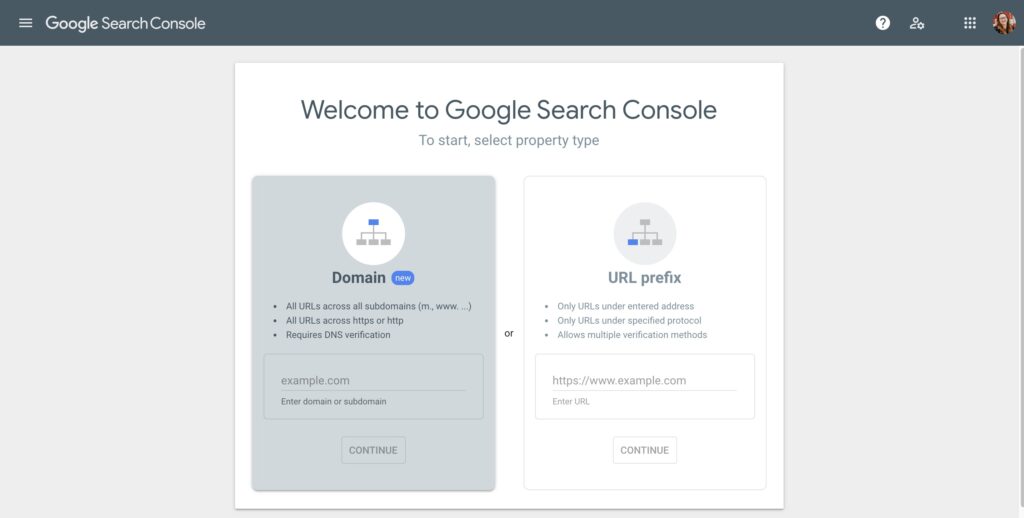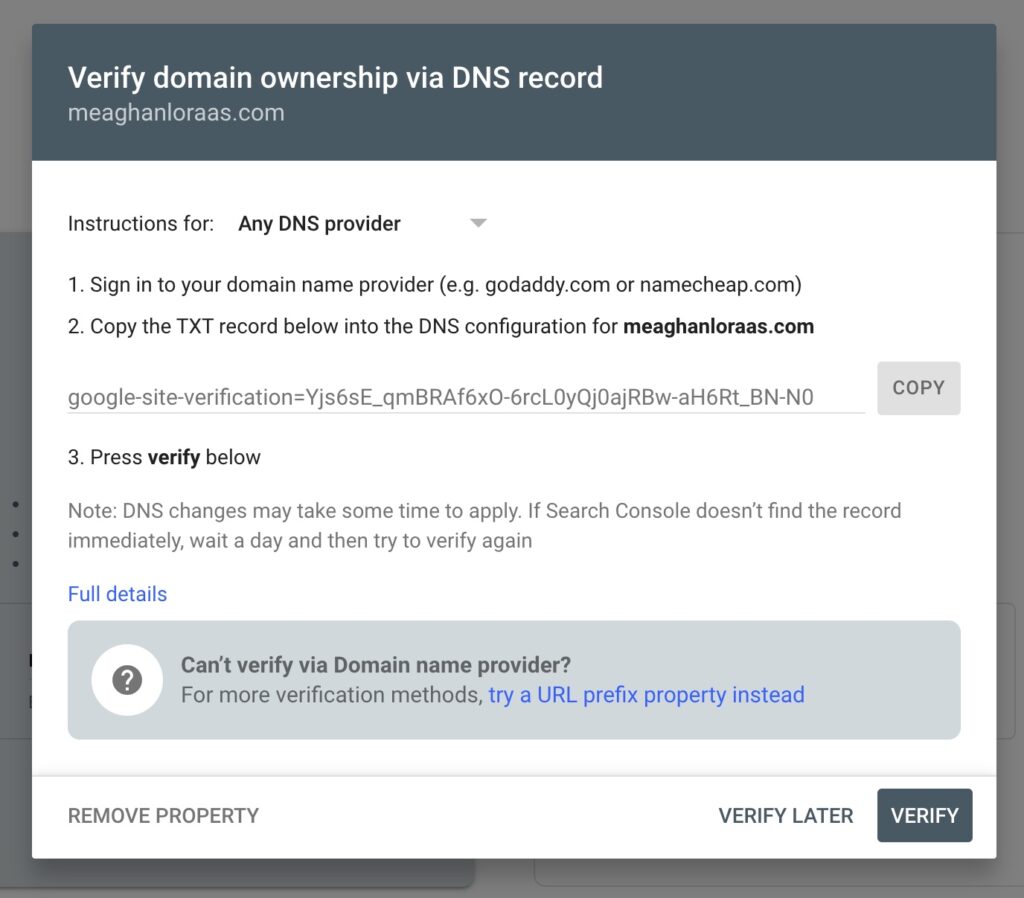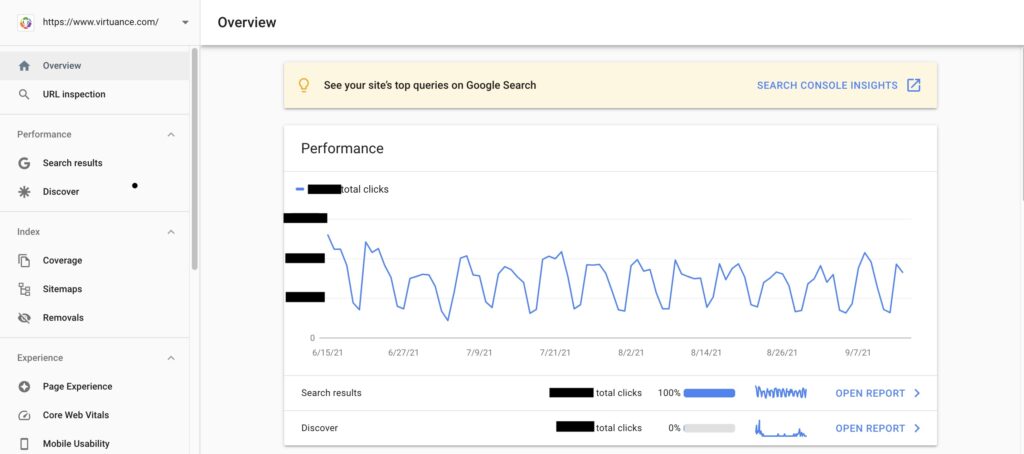Welcome back to Farm Friday! As promised, this installment focuses on Google Search Console (GSC). If you read our previous Farm Friday post, you understand how important it is to claim and optimize your Google My Business profile.
But what about your website? Do you neglect it? If so, you wouldn’t be alone. Real estate agents are busy chasing leads and growing their farms. While real estate SEO isn’t on the top of many real estate agents’ list of priorities, it should be. Rest assured, no matter what market you’re in, your competitors are using SEO tactics to generate leads and to appear ahead of you in search rankings. So, how can you tell how your website is performing when it comes to organic search? Keep reading to learn more.
Key Terms Defined
Like always, I’ll start every Farm Friday post with some key definitions to help you implement our lead generation tips and tactics.
What is Google Search Console?
Google Search Console is a free service offered by Google. The interface helps website owners track and maintain their appearance in Google’s search results. You can track your real estate website’s search engine rankings and organic search traffic.
What is SEO?
SEO stands for search engine optimization. It is the practice of optimizing your website so that you appear in Google’s business listings and search results for your search terms.
What are search terms?
Search terms, otherwise known as keywords, are the queries that people type into Google. For a real estate agency or brokerage, keywords such as “Las Vegas homes for sale” or “Raleigh realtors” (depending on your market, of course) are purchase-intent search terms that you should aim to rank for in Google search results.
How to Set Up Google Search Console
Google Search Console is one of the most user-friendly and important tools provided by Google. It’s my humble opinion (as a GSC nerd) that every realtor should understand how to interpret GSC data for their website. It helps you measure your search traffic and your website’s search performance. Additionally, you can find and fix issues on your website that may be preventing you from showing up in the SERPs (search engine result pages) for your market’s purchase-intent keywords.
1. Verify Your Domain
When you first visit Google Search Console, you will see the following:

Click on the left panel and enter your domain to start GSC setup. You have to verify your domain before you can access the data. It’s simple to do so. All you have to do is copy and paste a link into your DNS (domain name system) configuration. If you don’t have access to your DNS configuration, contact whoever manages your website for you and have them do this step for you.

2. Take a Peek at the Homepage
Once your search console is set up, you’ll be able to see an overview of your website’s performance. Obviously, as a real estate agent, your specialty is probably not analyzing monthly search volumes or how your most recent blog post performed in comparison to other posts for the same search queries. That’s why Google Search Console is so useful! For most real estate agents, I would recommend focusing on the following sections in GSC.

Overview
The overview section gives you a broad… overview (ha!) of your website’s search performance and clicks. The blue lines show how many people have clicked on your website in Google’s search results.
URL Inspection
If you’re wondering if a certain page has been indexed by Google, you can use the URL inspection to check and see if your webpage is showing up in online searches.
Search Results
If you click on search results, you can see which pages are showing up for which real estate keywords. This section can help real estate professionals come up with ideas for helpful content for your audience (potential home buyers).
Impressions Vs. Clicks
In the search results, you will be able to see how many impressions and clicks each page on your website gets. Impressions are the instances in which your website showed up for a certain query. For example, consider if a person types “real estate broker near me” into the search bar. For this particular search, imagine that one of your webpages gets 5,000 impressions and 17 clicks. This means that this webpage showed up 5,000 times in the SERPs for this query but only 17 people clicked on it. That would make your click through rate (CTR) is .0034% (17 over 5,000) for that search query.
A webpage with high impressions but a low click-through rate are great opportunities for real estate businesses. What can you do to make that webpage more attractive to your target audience? Perhaps you should change the title of that page. Maybe you should add more relevant content to the page. If you want to get fancy, you could combine the information you get from Google Search Console with a keyword research tool such as SEMrush or Ahrefs. You’ll quickly have a list of keywords and keyword ideas to focus on in order to generate more organic traffic to your real estate business website.
Coverage
This section of Google Search Console will help you identify any problematic pages on your website. The green lines indicate healthy pages while the red lines show where you have opportunities to improve. Google has recently switched to mobile-first indexing. This Coverage section helps you visualize which of your webpages are properly optimized for mobile usability and which ones aren’t.
What If I Want More Information?
If you are a data nerd, you may wonder where to find more information about your website’s performance. Google Analytics provides much more detailed information about your website’s pages and your users’ actions. You can get real-time updates on how many users are on your site, what they are looking at, and how many leads you generate from your organic traffic. You can deep dive and check conversion rates, how a certain piece of content is performing, and which pages lead to customer conversions.
It’s my belief that a typical real estate agent can get the information they need from Google Search Console. However, if you want to know how many hits you’re getting on certain property listings or your homes for sale, you may want to dive a bit into Google Analytics. In any case, Google Search Console is a powerful SEO tool for your real estate marketing tactics.
Need More Content Like This?
Sign up for The Good Stuff newsletter to get content like this delivered to your inbox every week. And come back next Friday to learn about content tools for real estate agents!








